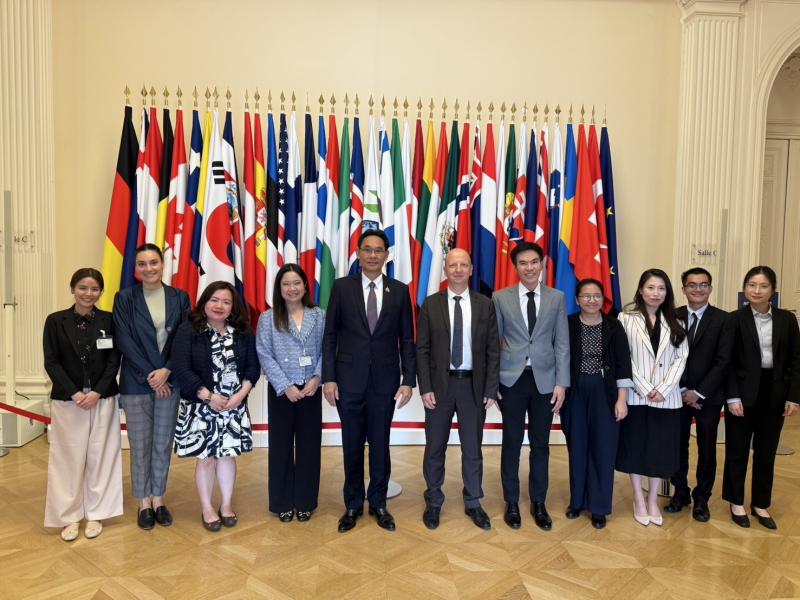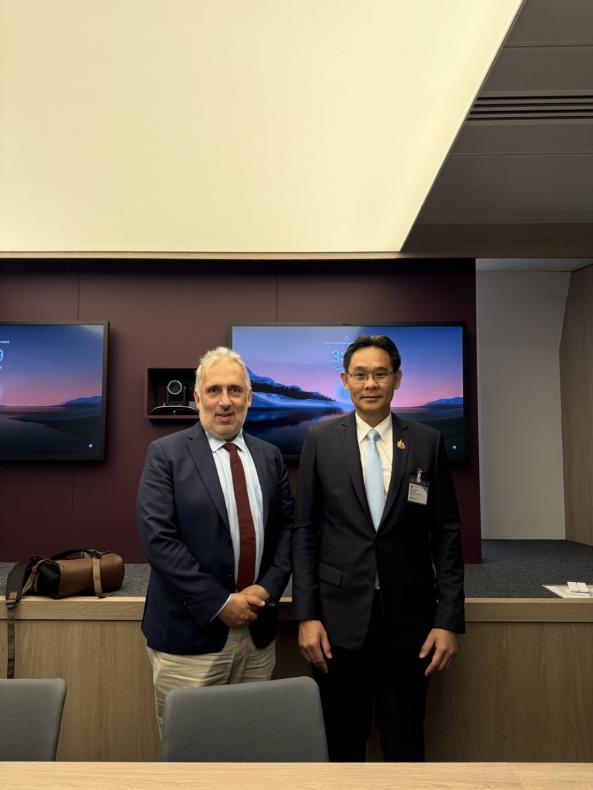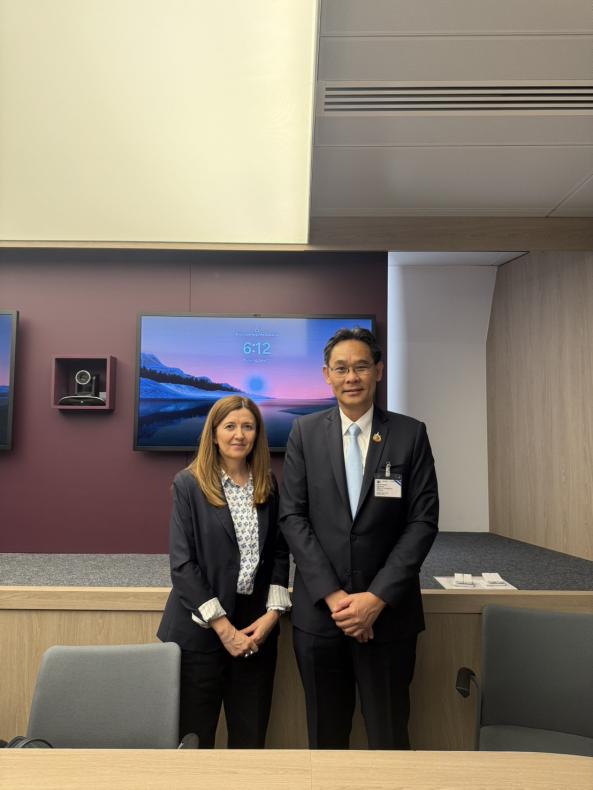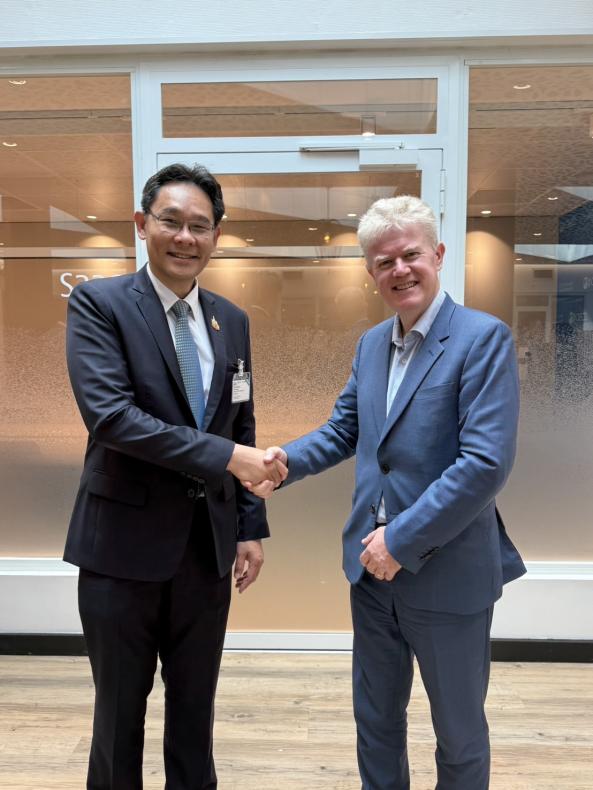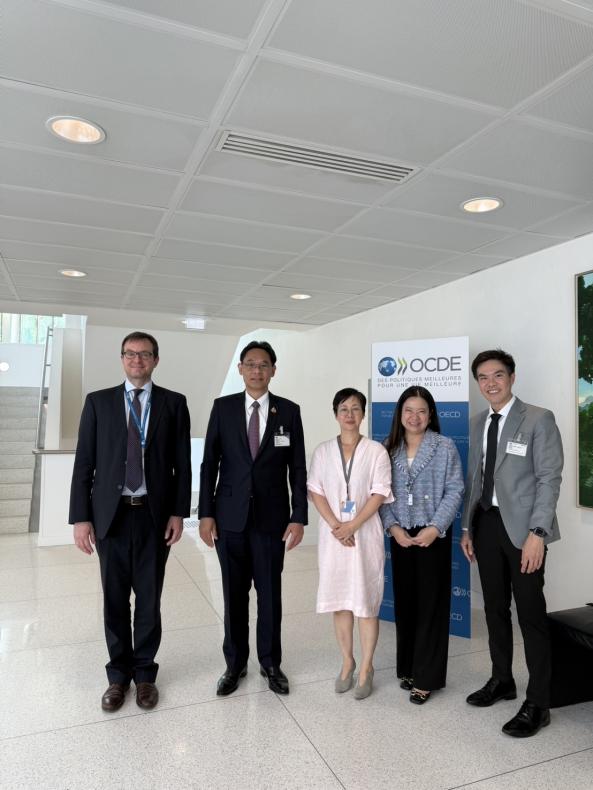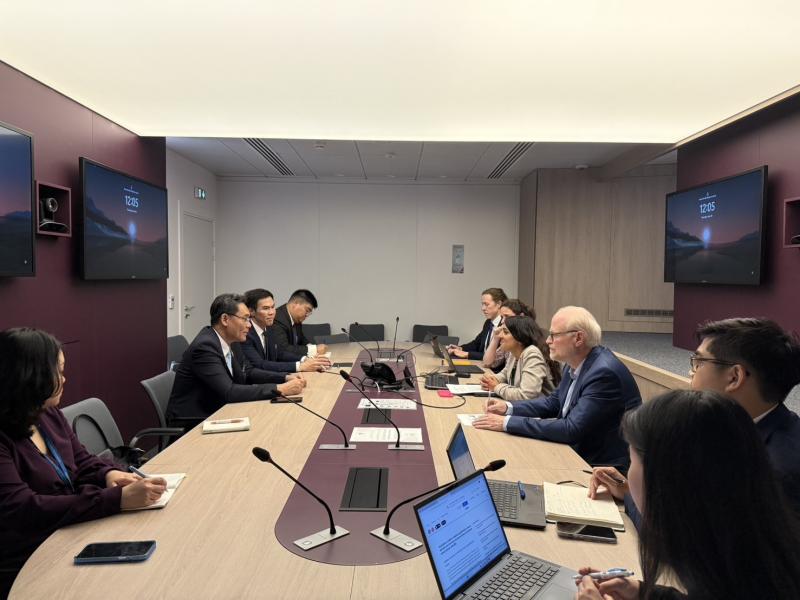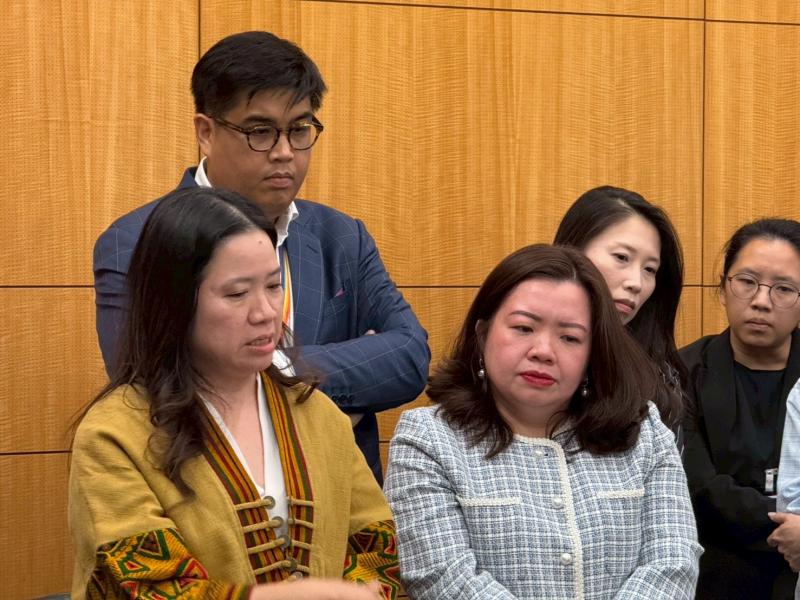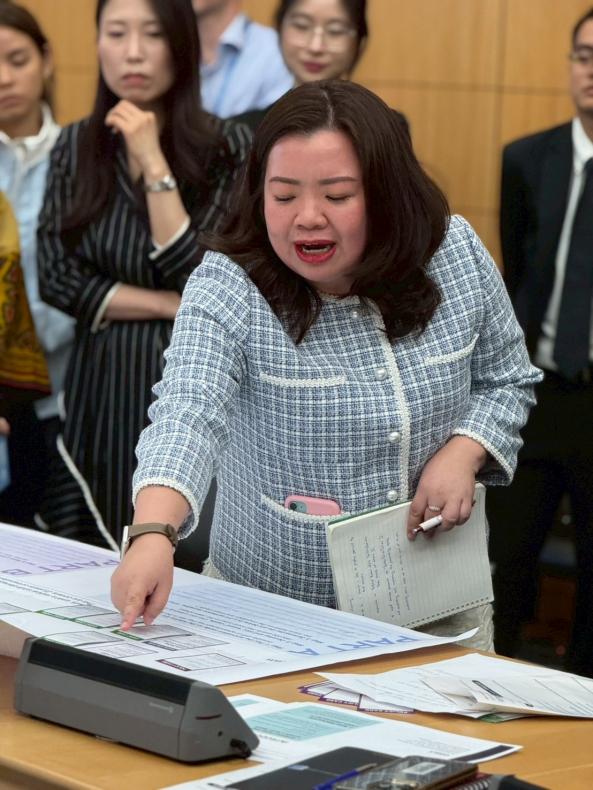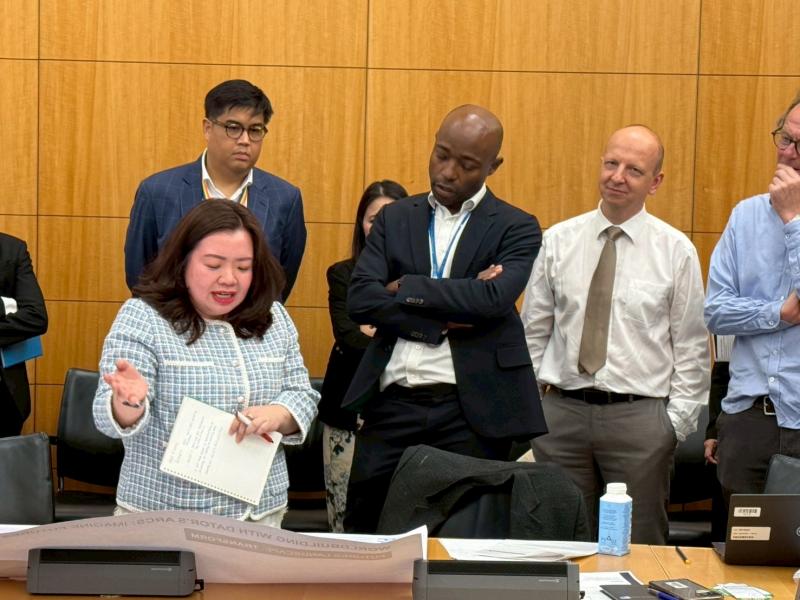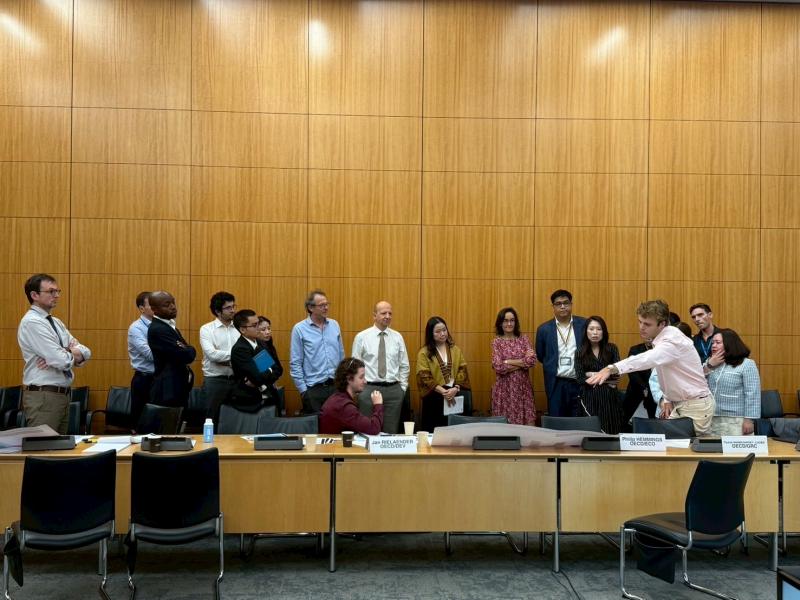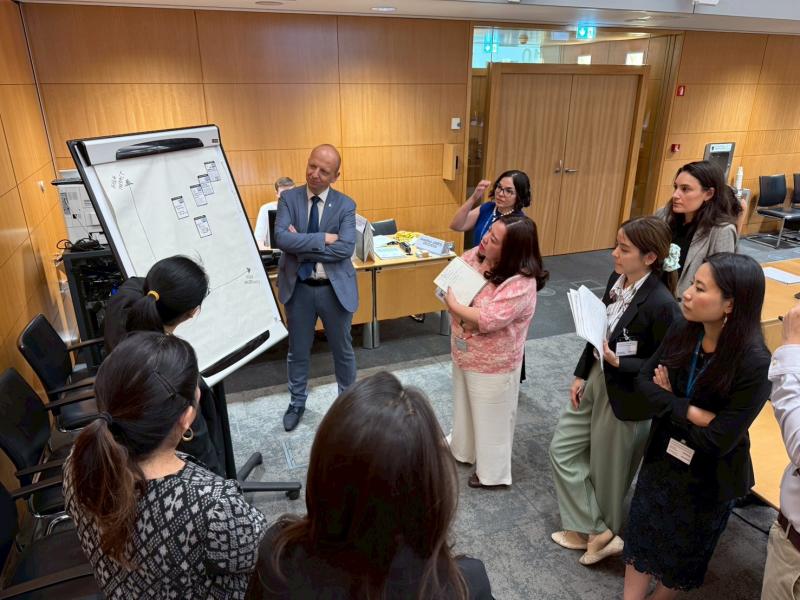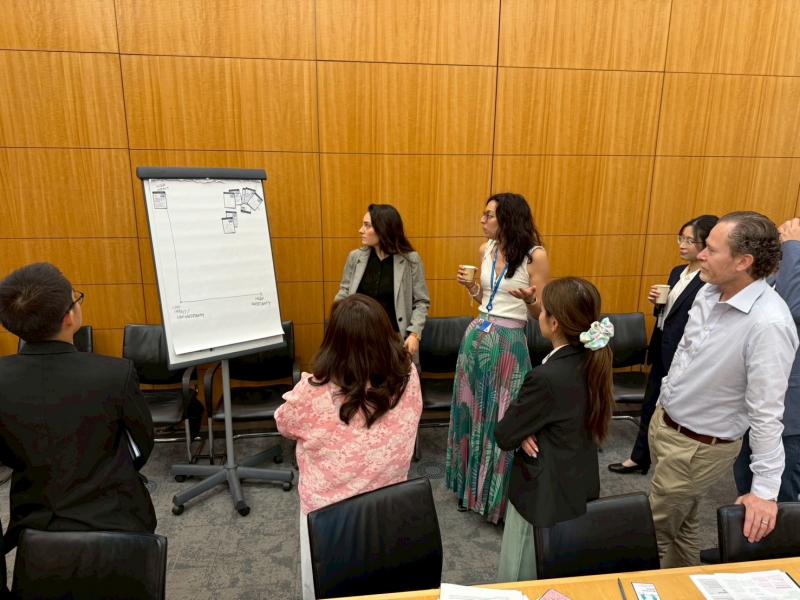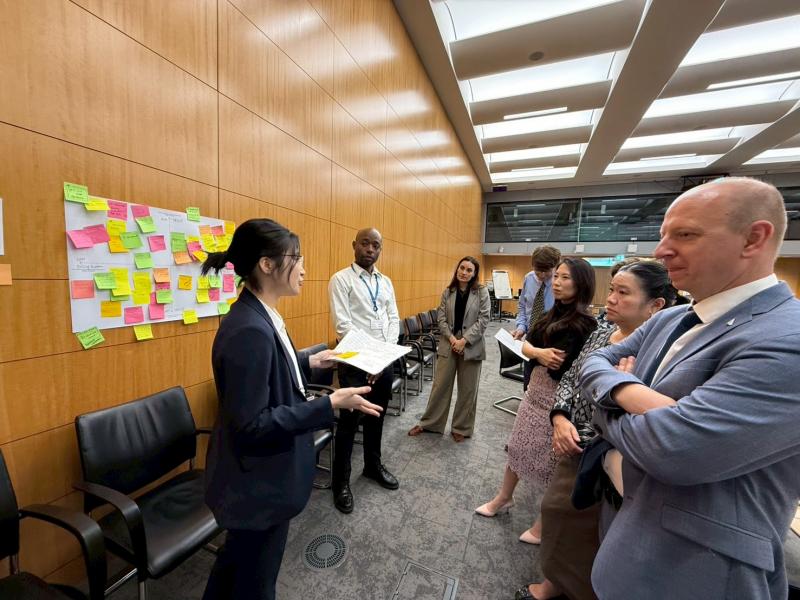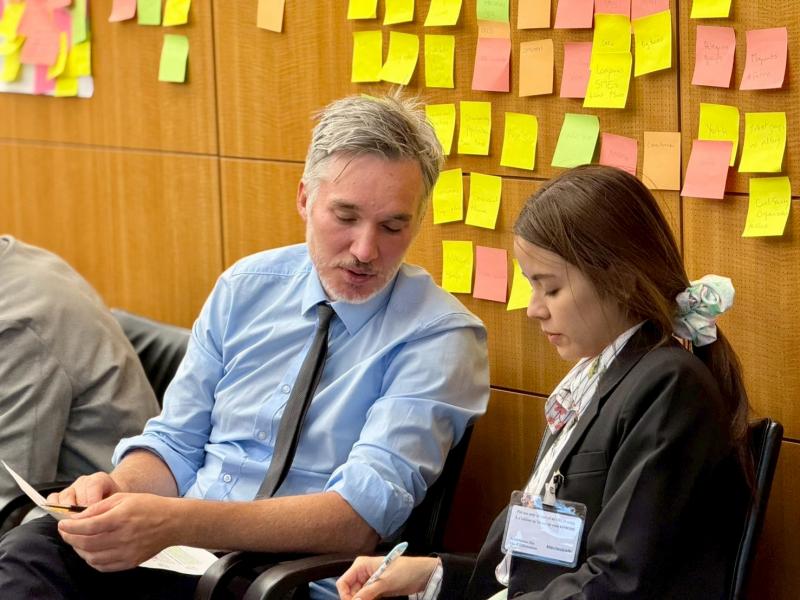Mr. Danucha Pichayanan, Secretary-General of NESDC along with NESDC executives and officials participated in discussions with the Colombian Ambassador to the OECD and Romanian Chargé d’Affaires to exchange views on OECD membership and share knowledge on Strategic Foresight techniques for drafting the 14th National Economic and Social Development Plan (2028-2032) during June 22-27, 2025, in Paris, France
The Secretary-General of NESDC met with Rafał Kierzenkowski, Head of Strategic Foresight Unit and emphasized the implementation of strategic foresight processes and international perspectives gained from this workshop to analyze contextual changes and develop comprehensive development scenarios for the country to effectively prepare the 14th National Economic and Social Development Plan. Additionally, NESDC also held discussions with officials from the Observatory of Public Sector Innovation (OPSI) under the OECD Public Governance Directorate regarding the development of approaches to enhance institutional mechanisms for driving the 14th Development Plan, which will be jointly implemented in the next phase
During June 23-25, 2025, NESDC officials participated in the Strategic Foresight workshop to analyze key global change signals during the 14th National Economic and Social Development Plan (2028-2032) period, together with over 30 OECD experts from the Strategic Foresight Unit and development specialists in various areas such as economics, agriculture, environment, education, and governance. Strategic foresight is considered a crucial process for systematically analyzing highly volatile and uncertain trends or signals of change, ensuring that the 14th Development Plan is flexible and robust enough to handle future changes
The workshop activities included learning and experimenting with Strategic Foresight tools such as Futures Wheel for identifying impacts at various levels, Dator’s Arcs for presenting different development alternatives, Stakeholder Analysis for analyzing relevant stakeholders, and 2 x 2 Matrix for developing development scenarios based on factors with high impact and uncertainty for national development. Furthermore,there was an exchange of perspectives and opinions regarding the findings of trend studies and impact assessments that NESDC had initially conducted along with anticipated changes that could affect OECD’s development policy direction and framework, ensuring that the analysis appropriately reflects both domestic and global context changes. The issues of “Eroding Trust in a Changing World” and “Competitiveness in the New World Order” were unanimously identified by workshop participants as high-priority matters for Thailand’s national development policy
During this occasion, the Secretary-General of NESDC also met with H.E. Luis Fernando Medina Sierra, Colombian Ambassador to the OECD and Gabriela Butu, Chargé d’Affaires of the Romanian Delegation in Paris. Both representatives provided recommendations to Thailand on preparation and key issues that coordinating agencies should expedite for efficient membership process, including: (1) The government must demonstrate consistent political commitment to advancing OECD membership through high-level meeting participation, public communication, and accelerating adoption of key OECD legal instruments such as the OECD Anti-Bribery Convention. (2) The process of domestic law amendment is time-consuming, therefore communication with the legislative branch is necessary to create awareness, understanding, and recognition of urgency in considering necessary legal amendments in parliamentary procedures. (3) Establishing a permanent Coordination Team in Paris responsible for OECD membership is an investment for the country, as Thai representatives can attend in-person meetings, which will enhance relationships and ensure continuity in participating in OECD committee meetings and various collaborations with OECD and its member countries
Regarding discussions with representatives from the OECD Directorate for Legal Affairs about progress towards OECD membership, the Secretary-General of NESDC reported that Thai agencies are currently preparing the Initial Memorandum (IM) and expect to submit it to the OECD by December 2025, coinciding with when NESDC and OECD will release the Thailand Economic Surveys 2025 and the OECD Secretary-General’s scheduled visit to Thailand. This presents an excellent opportunity for Thai representatives to submit the IM to the OECD Secretary-General, which will help raise public awareness and demonstrate how OECD membership can benefit Thailand. In 2026, Thailand will begin the next step of Technical Review. OECD recommends that Thailand prioritize areas to be assessed through 25 OECD committees, considering issues related to government policies, matters easily understood by the public, and areas where Thailand has already implemented OECD standards through the OECD-Thailand Country Programme to accelerate the OECD membership process
Additionally, discussions were held with representatives from OECD Directorate for Employment, Labour and Social Affairs and OECD Development Centre regarding cooperation in development and country advancement, which will help Thailand access knowledge and development tools, as well as receive policy recommendations beneficial for national planning, particularly in challenging areas such as labor informality, social protection systems, aging society, productivity, green food systems, and economic impacts from disasters. The Secretary-General of NESDC expressed interest and willingness to assist OECD in coordinating with relevant agencies, which will strengthen cooperation between Thailand and OECD and enhance Thailand’s role in the OECD
News: International Strategy and Cooperation Division and Strategic Research and Study Division
